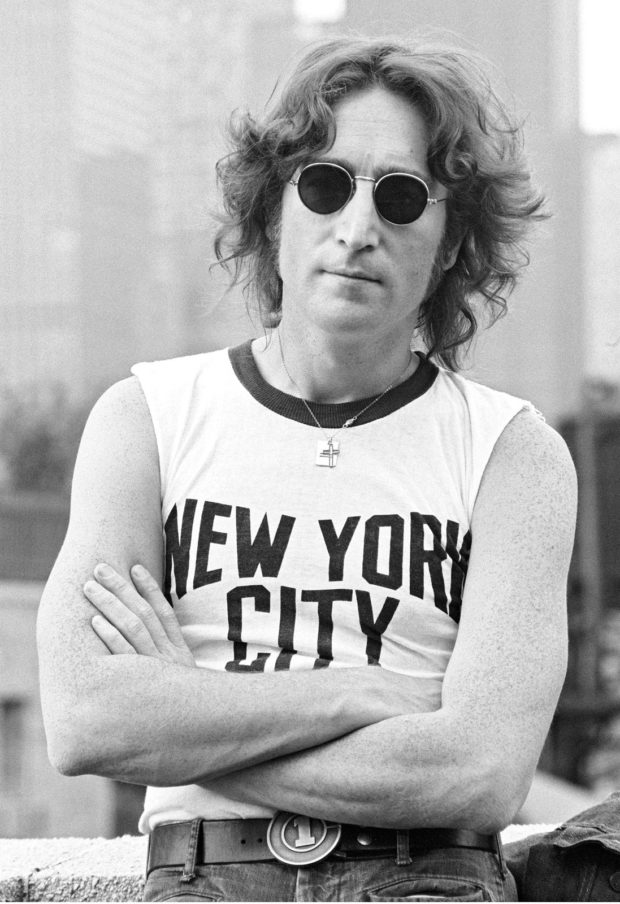For many of us who grew up in the ’60s and ’70s, one band continues to resonate in our hearts and dominate our playlist, The Beatles, which was recently ranked No. 1 artist of all time by Billboard Magazine as part of its 125th anniversary.
While each of the fab four—John Lennon, Paul McCartney, George Harrison and Ringo Starr, continues to have his own impact on the music industry, this article will focus on the former who was shot dead 19 years ago.
Martin Nievera, local music industry’s Concert King, described Lennon as “a hero who wears no cape, yet he can fly and change the world with just one well-sharpened pencil.”
“The music of John Lennon has inspired movements, especially peace movements around the world fighting for change, for a better world,” added singer-composer Noel Cabangon.
“I was introduced to The Beatles by my father, and I believe the first few songs that caught my attention was ‘We Can Work It’ and ‘In My Life,’” said Karl Ramirez, singer-composer and music producer for Pordalab band, whose songs seek to inspire people to love and care more for others.
“The Beatles represented a culture shift alongside many world-changing events in the 1960s,” said Bob Novales, a radio personality who hosted a regular all-Beatles show in the late 1980s. “Musically, they were a very good, very productive and very successful rock and roll band.”
Lennon once said, “My role in society, or any artist’s or poet’s role, is to express what we all feel. Not to tell people how to feel. Not as a preacher, not as a leader, but as a reflection of us all.”“Imagine” is one example of Lennon’s many expressions and reflections of the realities around the world.
Novales described “Imagine” as a Lennon masterpiece which had every kind of follower pinned on requesting it.
“This song has become an anthem for activists all over the world. The questions and ideas posted are very challenging,” said Cabangon, who has written songs with cultural, political and social themes.
In May 1969, John and Yoko staged the famous “Bed-In” Lennon at Queen Elizabeth’s Hotel in Montreal in an effort to promote world peace. Out of this act of protest came the song, “Give Peace A Chance,” which quickly became the anthem of the antiwar movement in the US.
Cabangon said that the song will always be relevant everywhere where there is conflict.
“Today, we see too many wars in different parts of the globe, and the dream of realizing this is far from fruition, but we are always reminded that war only brings destruction and will bear more conflicts. In war, there are no winners. This song encouraged me to write my own song about peace,” he said.
Nievera said that “Stand By Me” with “Imagine,” mashed up with “Give Peace a Chance,” is his go-to encore number. “I am one singer who believes you should leave your audience wanting more and at the same time going home with a message. And if that doesn’t work, I’ll do, ‘All You Need is Love,’ for the ultimate mega sing-along.”
Lennon also did not fail to send a positive message about women through the song, “Woman.” It was the second single released from 1980’s “Double Fantasy” and the first single released after his death.
In one of his last interviews for Rolling Stone magazine, Lennon said: “‘Woman’ came about because, one sunny afternoon in Bermuda, it suddenly hit me what women do for us. Not just what my Yoko does for me, although I was thinking in those personal terms … but any truth is universal.”
Nievera described the song as the most sincere and honest way to tell us all how powerful and sensitive a woman is. “Especially to John, his woman was everything to him. She is what makes him the man he is and conquers, cradles and cares for the child in him. Every woman should be honored the way this song honored Yoko Ono.”
The song served as an ode to Yoko Ono and maybe, to all other women. Beyond honoring women, the song also resonates in today’s #MeToo environment.
Ramirez added that Lennon has shown us that music can be a tool for unity and for getting the message across. “Lennon has also pushed for musicians to speak up for women. We have a song dedicated to upholding women’s rights, titled ‘Kalahati ng Mundo’ (Half of the World).”
Cabangon admires Lennon’s courage and his commitment and dedication to his dreams for the world. “He left the world a legacy that we will always aspire for,” said Cabangon, adding that Lennon had already been immortalized through his songs. “His songs still continue to inspire people and artists, like me, who inspire the same for the world.”
Ramirez also shared his admiration for Lennon’s passion to make music speak about the times. “Lennon was unafraid of the consequence of speaking about what’s wrong with society, and using his influence to make people come together and change it,” said Ramirez.
Nievera said that it would be hard to choose just one favorite Lennon song since he wrote so many epic songs even after The Beatles.
“But if I were to choose one that really hits me even to this day, it would have to be, ‘Happy Christmas,’” said Nievera. “Nothing too deep and yet the message carries such a heavy load. It’s even hard to believe it is now considered a Christmas carol. But if you listen closely you will hear a world in need, crying for a ‘Happy Christmas’—the kind of Christmas everyone deserves.”
